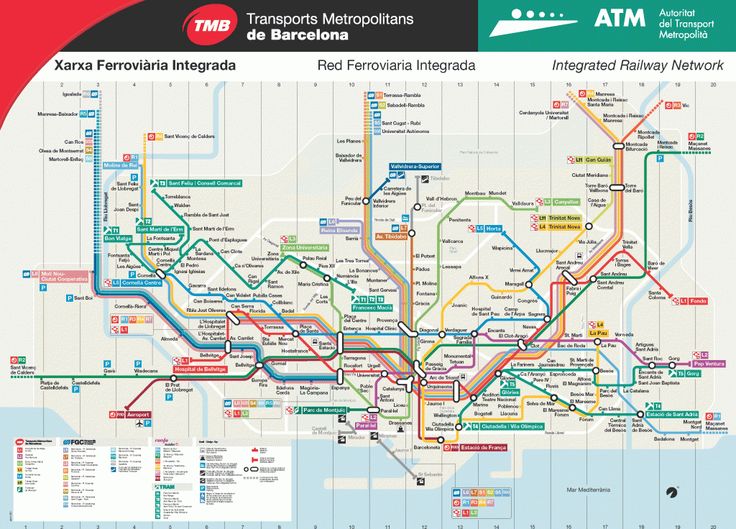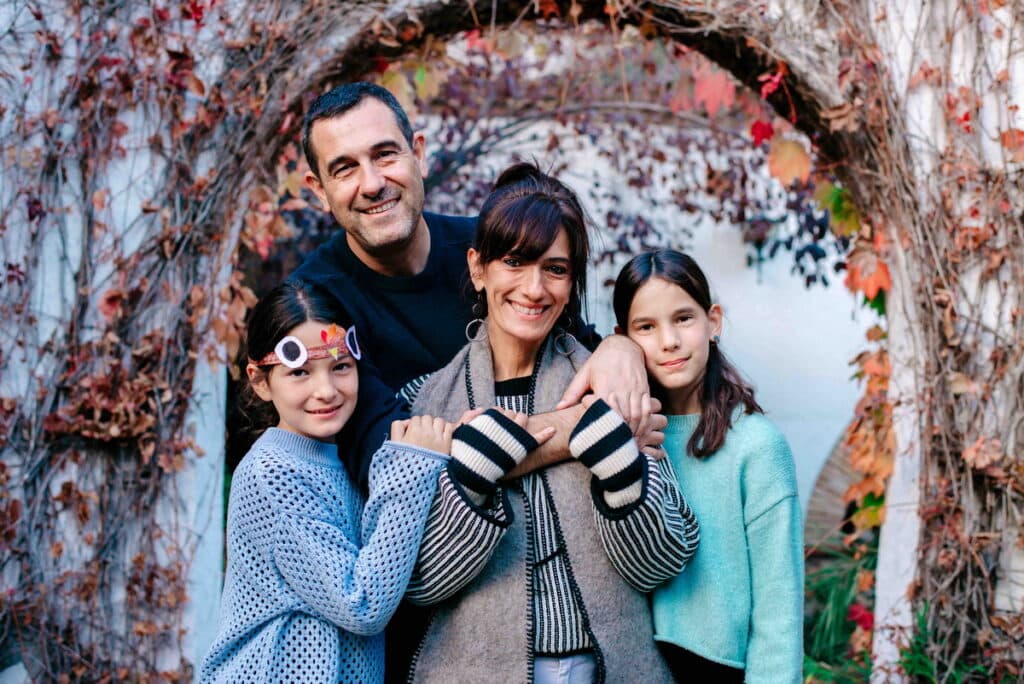Living in Barcelona was a dream of mine for many years before I moved to this amazing city. If you have visited for holidays, you will understand why. It is a beautiful city of atmospheric narrow streets with lovely parks and a beach stretching for miles. The city is home to a diverse population of over 1.6 million people, many of whom have relocated here from around the world. From exploring the city’s rich history and culture to enjoying its world-class cuisine or relaxing on one of its many beaches, living in Barcelona offers a great quality of life. If you are considering living in Barcelona, read on to see if the reality will live up to the dream.
7 Reasons Why I Love Living in Barcelona
1. Barcelona makes me feel alive, like nowhere else. It is buzzing with life. The locals are never at home. They live their lives in the bars, cafes, and streets of the city, which are always thrumming with the sound of lively conversation. The lifestyle here is extremely sociable.
2. The food is incredible. From hole-in-the-wall tapas bars to healthy cafes to fine-dining restaurants, there is delicious food wherever you turn.
3. Sunshine. In summer, Barcelona gets an average of 10-11 hours of sunshine per day. While in the winter months, it enjoys 5-6 hours per day. Feeling down is hard when you can always step out into the sunshine.
4. A multiage city. It is fantastic for people of all ages. In some cities, it can seem like the nightlife belongs purely to the under-25s. I remember being patronized in trendy Dalston in London by a young waitress. She said how lovely seeing us all dressed up and out for the night was. Aged 45, and we stood out like sore thumbs! In Barcelona, the bars are full of people of all age groups, and no one is made to feel out of place.
5. The history. Wandering the narrow streets of the Barri Gotic is like stepping back in time. Parts of the city are distinctly medieval. Many of the shopfronts have not changed in a century. The atmosphere is deeply affecting and romantic.
6. The beach! Living in a city that reaches over 30 degrees centigrade for several months can be stifling. But not BNC because there is always the Mediterranean on your doorstep. Whether you go swimming every day or take a stroll and stop for a mojito at one of the many chiringuitos, it enhances your lifestyle immensely.
7. The people. While Catalonians are not known for being as outgoing as Andalusians, I have generally found them to be very warm and helpful. Learn a little Catalan, and it will pay huge dividends.
And 3 things I could do without…
1. Traffic. Barcelona has a grid system with very busy roads outside the pedestrianized old town. The traffic flows well compared to most cities of this size, but that doesn’t stop the noise and pollution from being unpleasant.
2. Cost of living. While it is actually quite affordable compared to many other leading European cities, it is still quite expensive to rent. And the cost of living in Barcelona is higher than in Madrid or Valencia,
3. Stag and Hen dos. Before choosing your apartment, make sure to visit the street late at night on a summer’s evening. Drunken tourists can be annoying if you are in the heart of the Born area. A friend of mine keeps a bucket of water on his roof terrace, which he is not afraid to empty onto marauding gangs of drunken tourists.
Living in Barcelona as an American
To fully enjoy living in Barcelona as an American, you need to get into the rhythm of life in Spain. The locals eat a bocadillo at 10 or 11 am, which tides them over till lunch at 2 or 3 pm. This is usually the main meal of the day. And dinner, which might be just light tapas, is not till 9 or 10 pm. You will find very few places open to eat between 4 pm and 8 pm.
Sleep is not obligatory! Get used to seeing small children out till late at night. Take a nap in the afternoon so you can keep up in the evening. If you want to go clubbing, don’t even think about it till after 1 a.m.
It is an outdated cliche to say that bureaucracy and services are inefficient. But there is still an emphasis on getting things done in person. You will find you have to visit offices to get things done, far more than you might at home. On the plus side, this means there is still accountability, and a call center in a far-flung destination will not fob you off.
We asked Tina (56) from Boston how she has found living in Barcelona.
I’ve been here for 10 years now and it has changed a lot. in a good way! When I first moved here I could never buy a bottle of milk while on the school run. The store didn’t open till 9.30 and then they closed again from 1 till 5. It was frustrating! But now the supermarkets tend to stay open all day which makes it easier. But I would be sad to see it change too much more. Its charm lies in its traditional customs!
Retiring in Barcelona
Barcelona is a great place to retire to in Spain. Healthcare, both public and private, is easily accessible and of excellent quality. The weather provides great opportunities for living a healthy outdoor lifestyle. The Mediterranean diet is also a plus for those wishing to live a long life!
As of 2020, the average life expectancy in Barcelona was 83.7 years for women and 79.7 years for men, which is slightly higher than the Spanish average. And the social nature of life in Barcelona is also a fundamental part of a satisfying old age.
Best Places to Live in Barcelona
See our Barcelona Neighborhood Guide for more details.
If you want everything on your doorstep, you may live in the Old Town. This has the advantage of being away from the noise of the traffic. But it may make up for this with the noise of revelers late at night! Eixample is a lovely area to live in and is within easy walking distance of most of the city center buzz. San Antoni is a cool neighborhood with great places to eat and drink.
Heading to Poble Nou will bring you close to the sea and is popular with young families and the IT crowd. Head to the hills above the city for the sedate and expensive neighborhoods of San Gervasi, Sarria, Tres Torres, and Turo Park. These areas are popular with wealthy locals and Expats and convenient for international schools.
If budget is your primary concern, head to areas such as Sant Andreu, Nou Barris, and El Carmel. All are a little further out but offer easy transport links and good-value apartments.
Jobs in Barcelona for Expats
Barcelona is one of the major economic centers in Spain, with a strong job market in a variety of sectors. There are some good job opportunities for Expats living in Barcelona, but the first consideration is the language. You will have a far greater choice if you can speak good Spanish or Catalan. But there are also English-speaking jobs available in Barcelona. Here are some of the industries and job opportunities you can find in Barcelona:
- Tourism and Hospitality: As one of the most popular tourist destinations in Europe, Barcelona offers a variety of jobs in hotels, restaurants, and other hospitality-related businesses.
- Technology and Innovation: Barcelona has a growing technology sector, with a number of startups and established companies operating in the city. Some of the major players in the Barcelona tech scene are companies like Typeform, Glovo, and TravelPerk.
- Education: Barcelona is home to a number of universities and language schools, offering job opportunities for educators and administrators.
- Healthcare: Boasting a high-quality public healthcare system and a number of private hospitals and clinics, Barcelona offers many job opportunities in healthcare-related fields.
- Creative Industries: There is a thriving arts and culture scene, with opportunities in areas like design, fashion, and media.
- Business and Finance: there are many job opportunities in areas like banking, finance, and consulting.
Cost of Living in Barcelona?
Barcelona is Spain’s most expensive city, beating out the Capital, Madrid. Use our Spain cost of living calculator to see exactly what you’ll need to budget to live in Barcelona.
Rents vary from around 1000€ for a nice one-bedroom apartment to over 3000€ for a large house or apartment with access to a pool. Utility bills are also rather high. Air conditioning will really push up those energy bills.
On the upside, eating and drinking in bars and restaurants is very affordable. Menu del Dia’s (set lunch menus) are a great way of keeping your costs down. These can be as little as 12€ for three courses with wine or beer.
Overall, it is quite affordable compared to other cities with similar amenities worldwide.
Transport in Barcelona
Like many cities in Spain, transport in Barcelona is excellent. Start with the excellent Barcelona Metropolitan Transport website. It has an English language version that is packed with useful information.
Metro System in Barcelona
The metro system is incredibly extensive and, for many locals, is their primary mode of transport. With eight lines connecting 161 stations, it’s effortless to get from one part of the city to another. Tickets are valid for all public transport modes and last for 1 hour and 15 minutes. The metro operates from 5 am to midnight on weekdays, with extended hours on weekends.

Buses: The Green Way to Travel
Barcelona boasts over 1,000 environmentally friendly buses. Each bus has a specific number and letter indicating its direction and type. The tickets are interchangeable with the metro, making it convenient to mix and match a commute. However, it’s essential to check the timetables, as they vary depending on the bus line and days of the week.
Tourist Bus: Not Just for Tourists
While primarily aimed at tourists, the Barcelona Tourist Bus is a fun way to explore the city during your initial days here. It’s a hop-on-hop-off service with routes covering the city’s major attractions.
Airport Connectivity
Multiple options connect the city to the airport, including the metro, aerobus, and train services. The metro line runs to both T1 and T2 terminals, making it convenient for those frequent trips back home or to other destinations.
Electric Motorbikes: A Modern Twist
A unique aspect of Barcelona’s transport scene is the availability of electric motorbikes for rent. Apps like Ecooltra and Yego have made it easy to rent these bikes, offering a modern twist to city commuting.
Trains: Exploring the Region Beyond Barcelona
Barcelona’s train system is not just limited to the city but extends far into the region, making it an excellent tool for exploration. As an expat, I’ve found the train system to be a gateway to the diverse landscapes and cultures of Catalonia.
Barcelona Sants Train Station is the primary train station for national and international arrivals and departures.
RENFE, the national railway company, operates train services in and around Barcelona. The Rodalies commuter train system connects Barcelona to nearby towns and cities, making day trips or weekend getaways effortless. Here are some highlights:
- Montserrat: Just an hour away, the Montserrat mountain range with its iconic monastery is a must-visit. The train journey offers scenic views, and once there, you can take a funicular or hike to the top.
- Sitges: A coastal town known for its beaches, festivals, and vibrant nightlife, Sitges is a short train ride away. It’s a perfect spot for a sunny day out.
- Girona: Rich in history and architecture, Girona is a bit further but well worth the trip. The old town, with its medieval walls and narrow winding streets, is a delight to explore.
- Figueres: For art enthusiasts, Figueres, the birthplace of Salvador Dalí, is a must-visit. The Dalí Theatre Museum is the town’s main attraction.
For those looking to explore the broader Catalonia region, the high-speed AVE trains connect Barcelona to major cities like Madrid and Valencia in just a few hours.
In my experience, using the train system has been both economical and convenient.
To Own or Not to Own a Car?
One of the most significant decisions many Expats grapple with is whether to own a car in Barcelona. While having a car can be convenient for weekend getaways or trips outside the city, within Barcelona, it often feels redundant, and you’ll need a Spanish driver’s license. The city’s public transport system is efficient, and parking can be a challenge. Additionally, with the city’s push towards reducing emissions, there are days when car circulation is restricted. For many Expats in central Barcelona suburbs, the costs and hassles of owning a car in Barcelona outweigh the benefits. However, once you get outside the center, car ownership is much more common.
See our Transportation in Spain guide for more details.
What language does Barcelona speak?
The official language of Barcelona is Catalan. It is worth learning a few phrases if you plan to live in Barcelona. A few Independentistas (those who wish for Catalan independence from Spain) may reject your attempts to speak to them in Spanish.
7 facts about Barcelona
- Barcelona is a cosmopolitan city, home to a vibrant mix of cultures. About 23% of the city’s residents are from outside Spain, making it a welcoming place for Expats.
- Barcelona (spelled the same in all three languages) is pronounced differently depending on which language is spoken. In most of Spain, the “c” is pronounced as a “th” sound, but in Catalan, the “c” is pronounced as a “s” sound as per English. The city is the capital of Cataluña / Catalunya / Catalonia – the region in Spanish, Catalan, and English.
- The city is a UNESCO World Heritage Site, famous for Antoni Gaudí’s architectural masterpieces, including the Sagrada Familia (still unfinished since building commenced in 1882), Park Güell, and Casa Batlló. Living here means being surrounded by inspiring design and innovation.
- Barcelona boasts about 4.5 kilometers of beaches. Whether it’s for a morning jog or a lazy Sunday, the beach is always within reach. Barceloneta Beach was created in 1992 for the Summer Olympics.
- Barcelona is full of public spaces. From the squares of Eixample to the green expanses of Ciutadella Park and Montjuïc, there are places to meet, hang out, and live communally everywhere.
- Barcelona will have an area named after the singers Freddie Mercury and Montserrat Caballé. They famously celebrated the city in the song Barcelona, for the 1992 Olympics. You’ll find their mirador (lookout) between Carrer de Los Castillejos and Plaça de les Glòries Catalanes in Sant Martí.
- Barcelona was a major battleground during the Spanish Civil War ( 1936-1939). The war had a devastating impact on Barcelona, with much of the city destroyed in the fighting.
Does Living in Barcelona Appeal To You?
Barcelona is one of those places that beat expectations time after time. And if you make the city of prodigies (or “Barna” to the locals) your new home, it will astound you. If living in Barcelona is your dream, it is time to put that dream into action.
Living in Barcelona – FAQ
What is the population of Barcelona?
Barcelona is home to over 1.6 million people, with a diverse mix of locals and expatriates from around the world. Around 23% of the population are Expats born outside of Spain.
What languages are spoken in Barcelona?
Catalan and Spanish are both official languages in Barcelona. A basic understanding of Catalan is highly appreciated by locals, though Spanish is widely spoken. You’ll find English spoken in more tourist-friendly areas, too.
What is Barcelona’s Climate Like?
Barcelona enjoys a pleasant Mediterranean climate, characterized by mild, humid winters and warm, dry summers. Throughout the year, the sun is normally shining, with an average of 10-11 hours per day during the summer months. In winter, the sunlight duration is shorter but still generous, with an average of 5-6 hours of sunshine per day. Summer temperatures in Barcelona typically range from 20°C (68°F) to 30°C (86°F), offering warm but not excessively hot conditions, ideal for enjoying the city’s beaches and outdoor activities. In contrast, winter temperatures are mild, usually ranging from 8°C (46°F) to 15°C (59°F)
Are there international schools in Barcelona?
Yes, Barcelona has many international schools offering various curricula catering to the Expat community and locals alike. Our son’s school, for example, teaches the American curriculum with IB (International Baccalaureate). The school is 60% Expats and 40% Spanish nationals.








